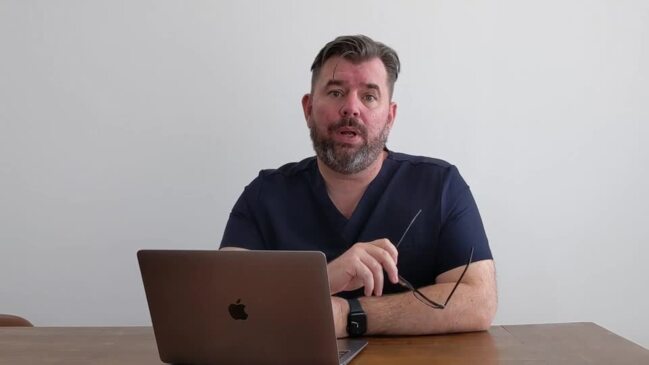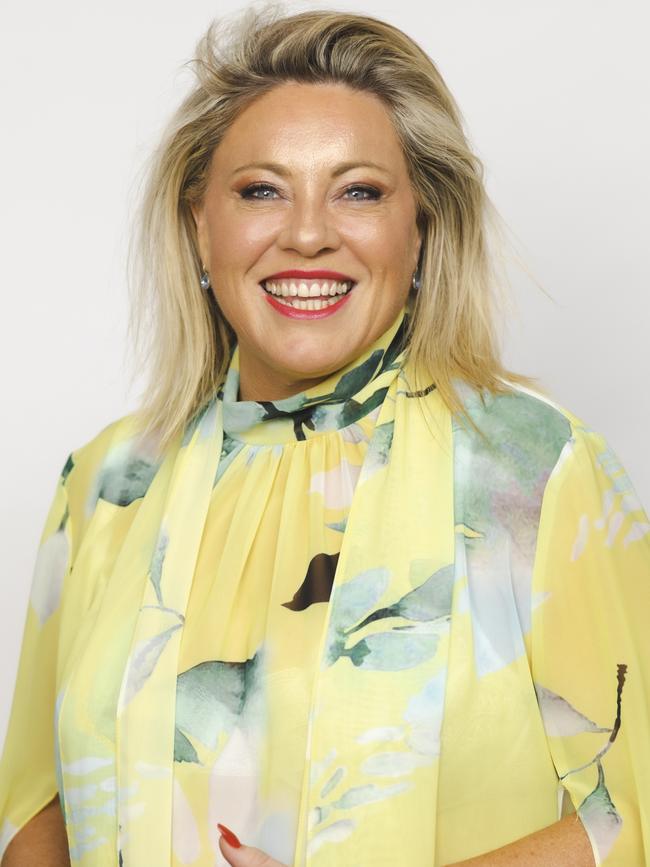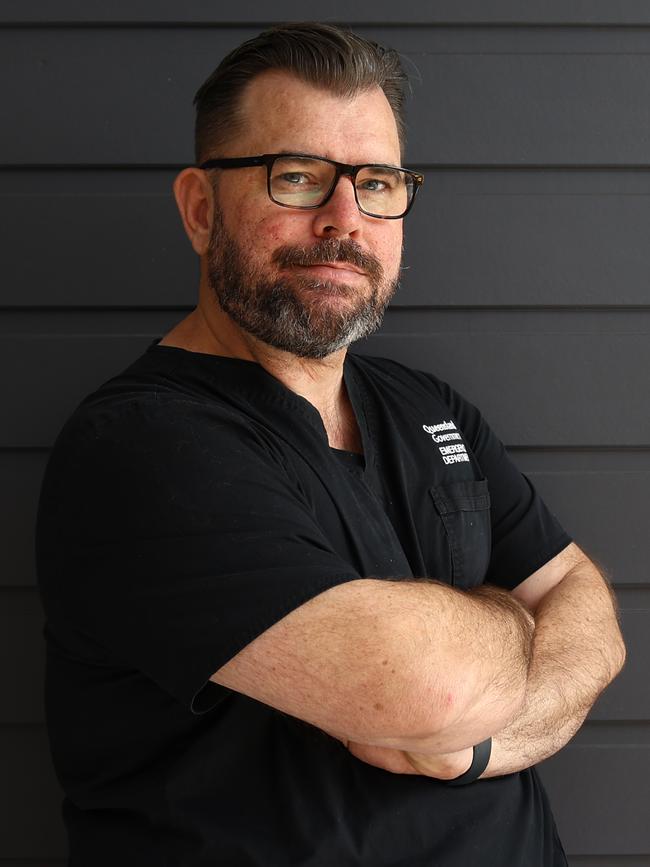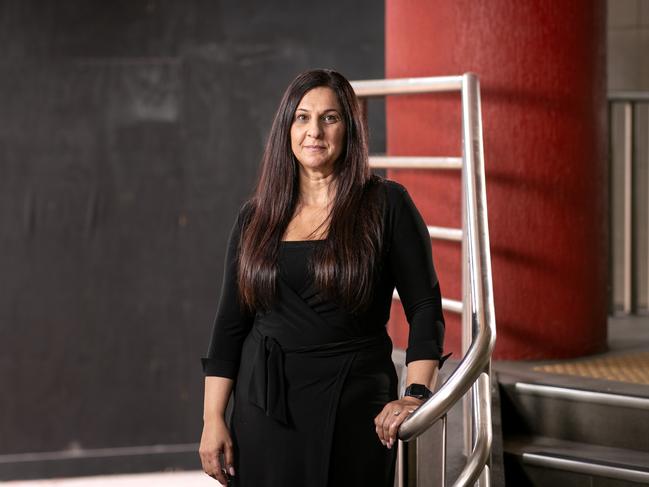Abused, stressed and overworked: Nursing in crisis as workers walk away
The shocking number of Aussie nurses who have quit since the pandemic has been revealed, as former staff members expose the horrific way they are treated - including being spat on in public.

Health
Don't miss out on the headlines from Health. Followed categories will be added to My News.
Exclusive: Australia is facing a chronic nursing shortage, with one in five leaving the profession to work as goat farmers, baristas or fire fighters.
A News Corp investigation has found 75,000 highly-trained staff have stopped working since Covid, sick of being verbally abused by patients and spoken down to by doctors whose roles they are performing more and more often.
A registered nurse on the average salary of $83,722 is paid less than librarians, warehouse managers and experienced retail workers, despite holding university qualifications – and frequently “guilted” into doing overtime.
Unless the exodus can be addressed – or those who have left be enticed back – experts say hospitals, aged care homes, and surgeries will struggle to “deliver the care the way they wanted to”.


Nursing associations are calling for:
• An urgent, 35 per cent pay rise for Australia’s 450,000 frontline nurses, midwives, and assistants in nursing (AIN), including better overtime provisions;
• A change to the current retrograde law – dubbed “professional slavery” – where Medicare pays nurses half of what a doctor gets for the same tasks;
• Former nurses to be paid to update their qualifications – and not made start them from scratch;
• Nursing students to be paid for their 800 hours of practical training.
“We’re in a health crisis just off the back of the global pandemic and organisations and governments have not regarded and valued and respected nurses in a way that allowed them to continue to deliver the care the way they wanted to,” the Australian College of Nursing (ACN) president Dr Kylie Ward said.
Nurse practitioner Chris O’Donnell said the entrenched discrimination and poor pay felt, for many, like “battered wife syndrome”.
“A collaborative arrangement (between doctors and nurses) is almost like forced dating. It’s pretty much like an arranged marriage where all the power sits with the husband and the wife can either exist under the rule of the husband, or she can go and starve and if that husband decides he doesn’t want you anymore, well, you’re gone,” Mr O’Donnell, who can speak freely as he now runs a business called My Weight Loss Clinic, said.
“I’m a male and when a doctor thinks that I’m a doctor and how they treat me when they find out that I’m a nurse, it’s horrible to watch the culture difference.”
Dr Ward said around 20 per cent of the workforce left after being denied leave during Covid and because of the “relentless nature of being harassed to do overtime, and more shifts … without seeing any systems solutions coming”.
She said recruiting back the “phantom health workforce” could not only quickly fill vacancies in aged care but ease the pressure on overworked general practitioners by prescribing medicine, doing skin checks and managing chronic care plans.
With just a 12 month training course, existing nurses could help ease hospital waiting lists for services like colonoscopies and other minor procedures that are performed by nurses in other countries.
Already 15 nurses have been trained to perform endoscopies in Victoria.

There is also a looming shortage of 10,500 general practitioners after the number of medical students choosing to train as a GP plummeted from one in two to one in seven in recent years.
Health Minister Mark Butler already has a review underway that will report on how to expand the scope of practice of pharmacists, nurses, physiotherapists and other health professionals.
“Nurse-led services are the sleeping giant of healthcare reform in Australia. Now is the time for policy and practice changes that will realise the transformative potential of nurse-led care.” QUT School of Nursing Professor Clint Douglas said.
The ACN has made a budget submission, pointing out that without urgent reform, the current nurse shortage will only worsen with the number of students taking nursing courses dropping from 103,550 in 2021/22 to 99,904 in 2022/23.
The Australian Nursing and Midwifery Federation (ANMF) has a separate landmark application before the Fair Work Commission (FWC) to boost award wages by 35 per cent.
It has told the FWC current “award rates are set too low, stemming from the historic, gender-based undervaluation of nursing and midwifery care work”.

“Nurses and midwives make up over 50 per cent of Australia’s registered health professionals and are, without exaggeration the backbone of our health and aged care systems. They are predominantly women, with approximately 89 per cent of nurses being female, and nearly 100 per cent of midwives,” the union’s submission says.
Australian College of Nurse Practitioner’s Association executive director Leanne Boase said not only did Medicare pay nurses less than doctors when they did the exact same job, nurses also missed out on tens of thousands of dollars in government incentive payments that help boost a medical practitioner’s income.
And when a nurse practitioner ordered many prescriptions or scans patients had to pay the full cost because Medicare and the PBS did not provide a subsidy.
Health Minister Mark Butler said in the next month, he will introduce the legislation to remove the red tape that prevents our nurse practitioners from billing Medicare and prescribing PBS medicines autonomously.
“I’d like to see those rules gone by 1 November and I encourage everyone in parliament to stand with our nurse practitioners,” he said.
The government was also considering introducing paid placements for nursing and teaching students in coming months as part of the Universities Accord, he said.
‘NO WAY TO GET AHEAD’
Karla would like to return to nursing but can’t afford to go without a salary for three years while she completes another $13,000 university degree.
The 55-year-old, who holds a masters in nursing, specialised in pediatrics and orthopaedics at then height of her career, was a clinical educator, and worked in the UK for a period.
“I really enjoyed the surgical side of nursing and have kept a keen interest in medical information,” she said.
Karla quit nursing in 2006, feeling there was “no way to get ahead” as there was minimal turnover in more senior positions.
Suffering from endometriosis she was also finding it very hard to cope with the toll that obligatory constant night shift rotations took on her body, further limiting promotional options as few offered consistent day shifts.
And she was concerned about staffing levels.

“You could sometimes have up to 30 unwell kids on a ward, with possibly 60 worried parents and a few siblings hanging around as well, so shifts could get very demanding and you’ve got a whole heap of responsibility,” she said.
“You could be on a shift working short by one person with a couple of agency staff who may have minimal skills or experience, or they just work one shift a week. The older I got, the less flippant I was about being in charge of shifts and more aware of what could actually go wrong and create a potentially life-threatening outcome.”
Karla left nursing to work in IT, then human resources, then eight years on returned to nursing a couple of days a week following a two-week refresher course.
But she does not have enough recent clinical hours to qualify for re-registration.
“I loved nursing, but I would have to do a degree all over again to get back in. There is no reasonably timed refresher course even though I’ve got a masters in nursing,” she said.
“I feel like there should be an option for testing of fundamental knowledge, skills and observation insights that stick with you forever, balanced with some intensive and focused practical updates of new procedures, medications and technology that fit with the intended nursing specialty you are returning to.”
‘I WAS HYSTERICAL, FELT HUMILIATED’
Already burnt out, the final straw for Rhonda Halabi came when a group of men spat at her when she visited a cafe in her nurse’s uniform.
“I was hysterical. I had never felt so humiliated, so degraded, so embarrassed and so worthless in my whole life,” she said.
“I never wore my uniform in public again because I was scared and I resigned from the hospital a few months later.”
She decided not to press charges, “for the simple reason that I pity those men because maybe they were uninformed”.
“I loved my job very much. I began my nursing career in 1994 and was dedicated to pediatrics for 26 years but during and after Covid, it just got to a point where the burnout was real, to be honest,” she said.

Throughout Covid she had to wear uncomfortable sweat-inducing Hazmat suits.
And she was seconded from her normal operating theatre job to help manage 2500 sick children via telehealth.
“You are pulling very long hours and then expected to go back and do it all again tomorrow and the day after and the day after that,” she said.
After resigning from the hospital she transitioned into a corporate position at the Australian College of Nursing.
“I have provided four references since I left clinical nursing. One of my colleagues left the nursing profession completely. There are a few that have left the profession because, you know, their heart’s just not in it anymore,” she said.
Ms Halabi said nurses’ pay rates needed to improve — and they need more support.
“I think the conditions need to change, we need to get all the skilled nurses back and nurses truly deserve some recognition and appreciation as well. I will continue to support and advocate for the nursing profession until something shifts,” she said.
HOW TO BOOST AND RETAIN NURSES
• Increase award wages for nurses, midwives, and assistants in nursing (AIN) by up to 35 per cent. Improve overtime pay and manage shift work better.
• Scrap rules preventing nurses being paid a Medicare rebate unless a doctor oversees their work.
• Provide a Medicare or PBS subsidy when nurses order scans, and medicines, so patients aren’t charged more.
• Train nurses to perform procedures like endoscopies to take pressure off the health system.
• Introduce a $3000 payment for nursing students doing 800 hours of currently unpaid practical training. Pay former nurses to update their qualifications.
.





